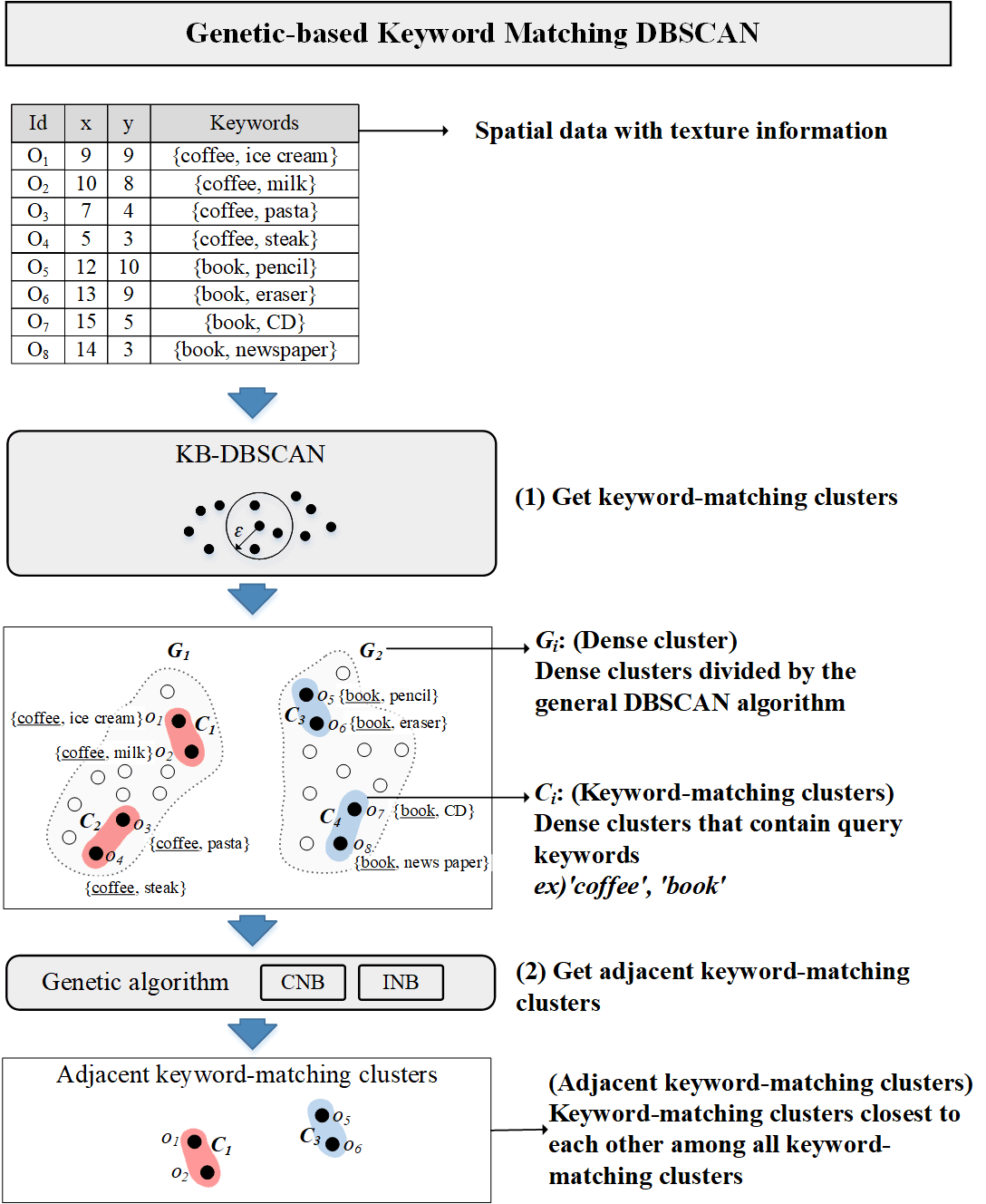 Open Access
Open Access
ARTICLE
Genetic-Based Keyword Matching DBSCAN in IoT for Discovering Adjacent Clusters
1 Department of Computer Engineering, Dongshin University, Naju, 58245, Korea
2 Department of Computer Science and Engineering, Jeonju University, Jeonju, 55069, Korea
* Corresponding Author: Hong-Jun Jang. Email:
(This article belongs to the Special Issue: Artificial Intelligence for Mobile Edge Computing in IoT)
Computer Modeling in Engineering & Sciences 2023, 135(2), 1275-1294. https://doi.org/10.32604/cmes.2022.022446
Received 10 March 2022; Accepted 16 June 2022; Issue published 27 October 2022
Abstract
As location information of numerous Internet of Thing (IoT) devices can be recognized through IoT sensor technology, the need for technology to efficiently analyze spatial data is increasing. One of the famous algorithms for classifying dense data into one cluster is Density-Based Spatial Clustering of Applications with Noise (DBSCAN). Existing DBSCAN research focuses on efficiently finding clusters in numeric data or categorical data. In this paper, we propose the novel problem of discovering a set of adjacent clusters among the cluster results derived for each keyword in the keyword-based DBSCAN algorithm. The existing DBSCAN algorithm has a problem in that it is necessary to calculate the number of all cases in order to find adjacent clusters among clusters derived as a result of the algorithm. To solve this problem, we developed the Genetic algorithm-based Keyword Matching DBSCAN (GKM-DBSCAN) algorithm to which the genetic algorithm was applied to discover the set of adjacent clusters among the cluster results derived for each keyword. In order to improve the performance of GKM-DBSCAN, we improved the general genetic algorithm by performing a genetic operation in groups. We conducted extensive experiments on both real and synthetic datasets to show the effectiveness of GKM-DBSCAN than the brute-force method. The experimental results show that GKM-DBSCAN outperforms the brute-force method by up to 21 times. GKM-DBSCAN with the index number binarization (INB) is 1.8 times faster than GKM-DBSCAN with the cluster number binarization (CNB).Graphic Abstract

Keywords
Cite This Article
 Copyright © 2023 The Author(s). Published by Tech Science Press.
Copyright © 2023 The Author(s). Published by Tech Science Press.This work is licensed under a Creative Commons Attribution 4.0 International License , which permits unrestricted use, distribution, and reproduction in any medium, provided the original work is properly cited.


 Submit a Paper
Submit a Paper Propose a Special lssue
Propose a Special lssue View Full Text
View Full Text Download PDF
Download PDF Downloads
Downloads
 Citation Tools
Citation Tools